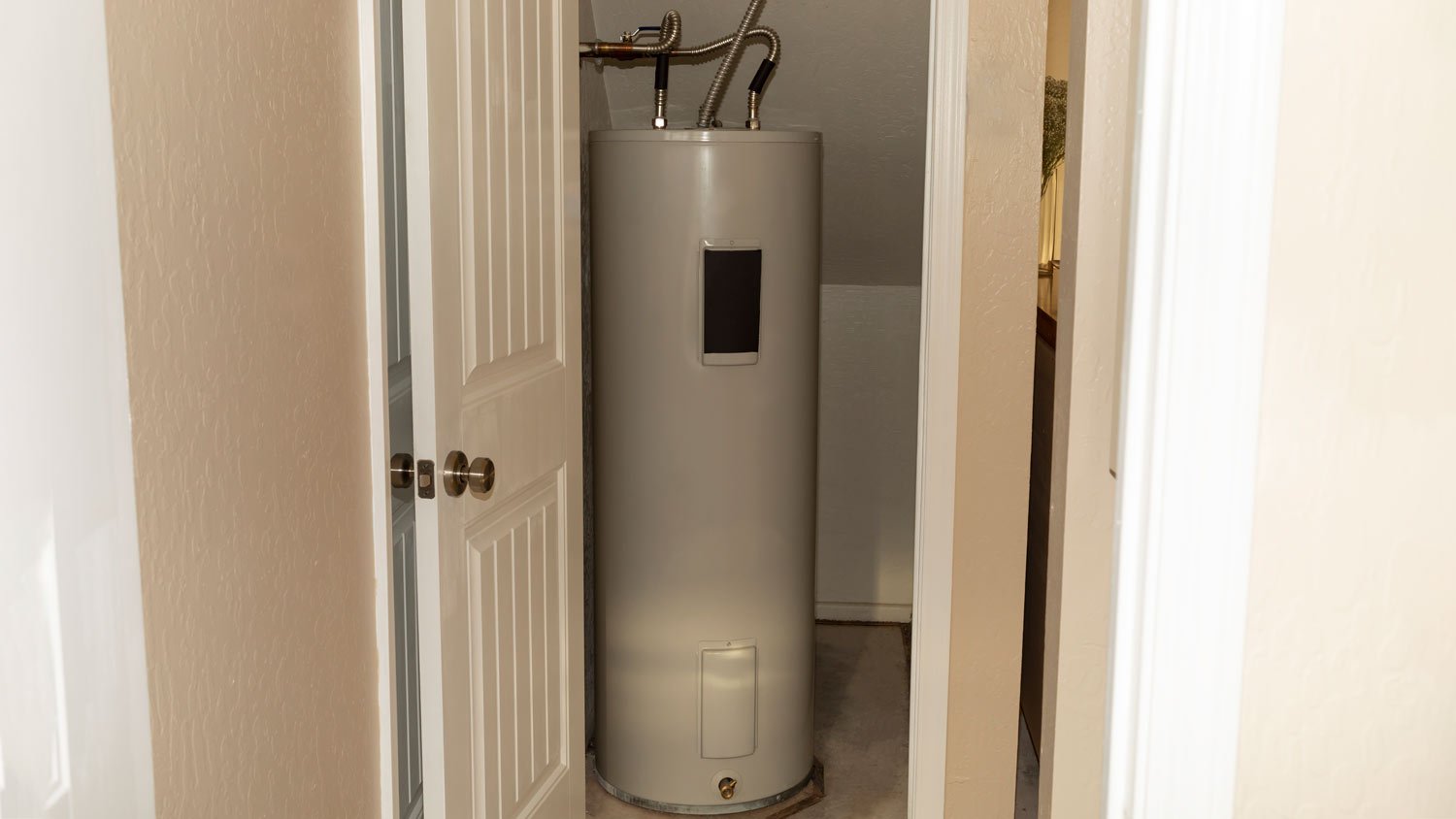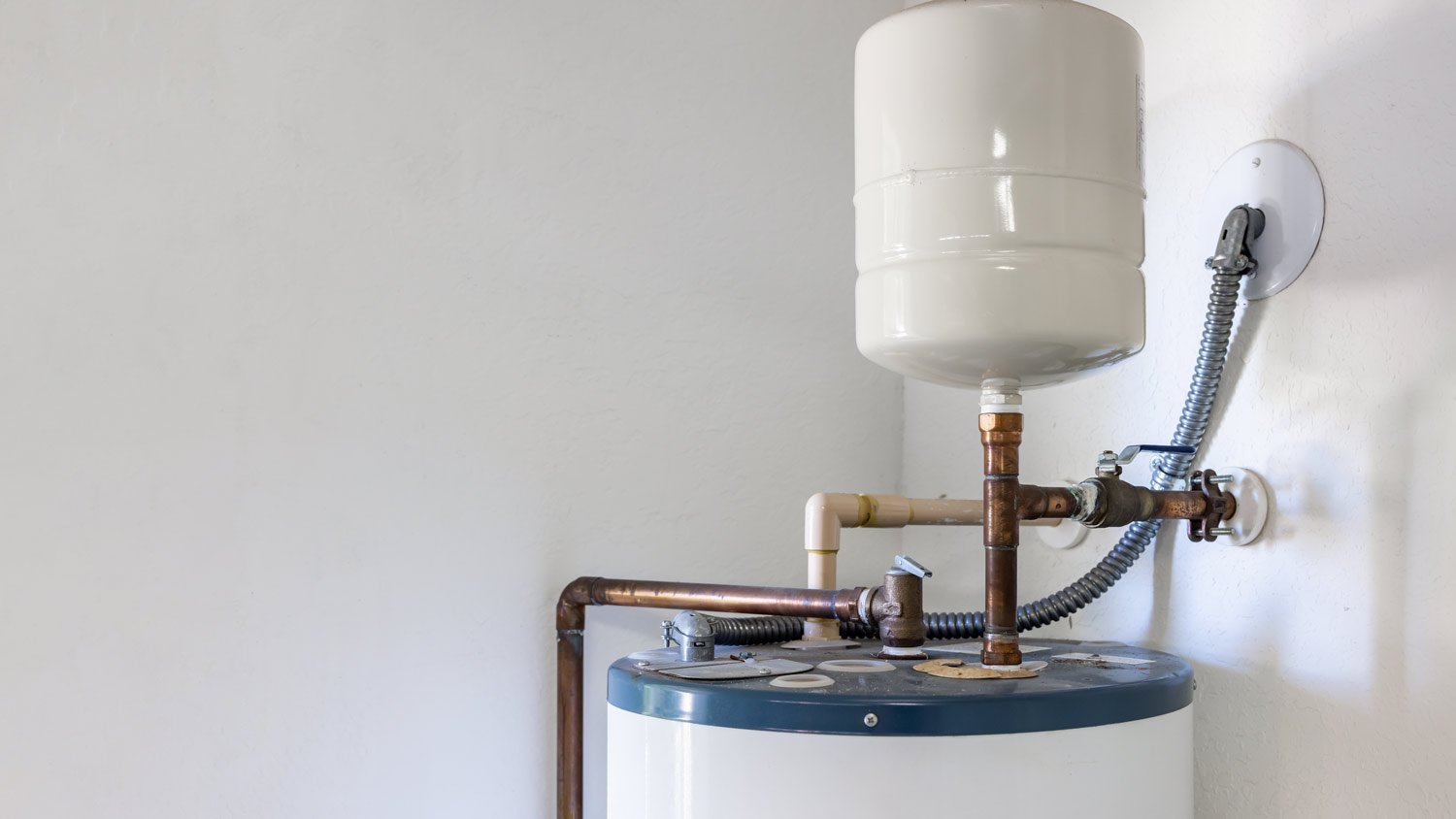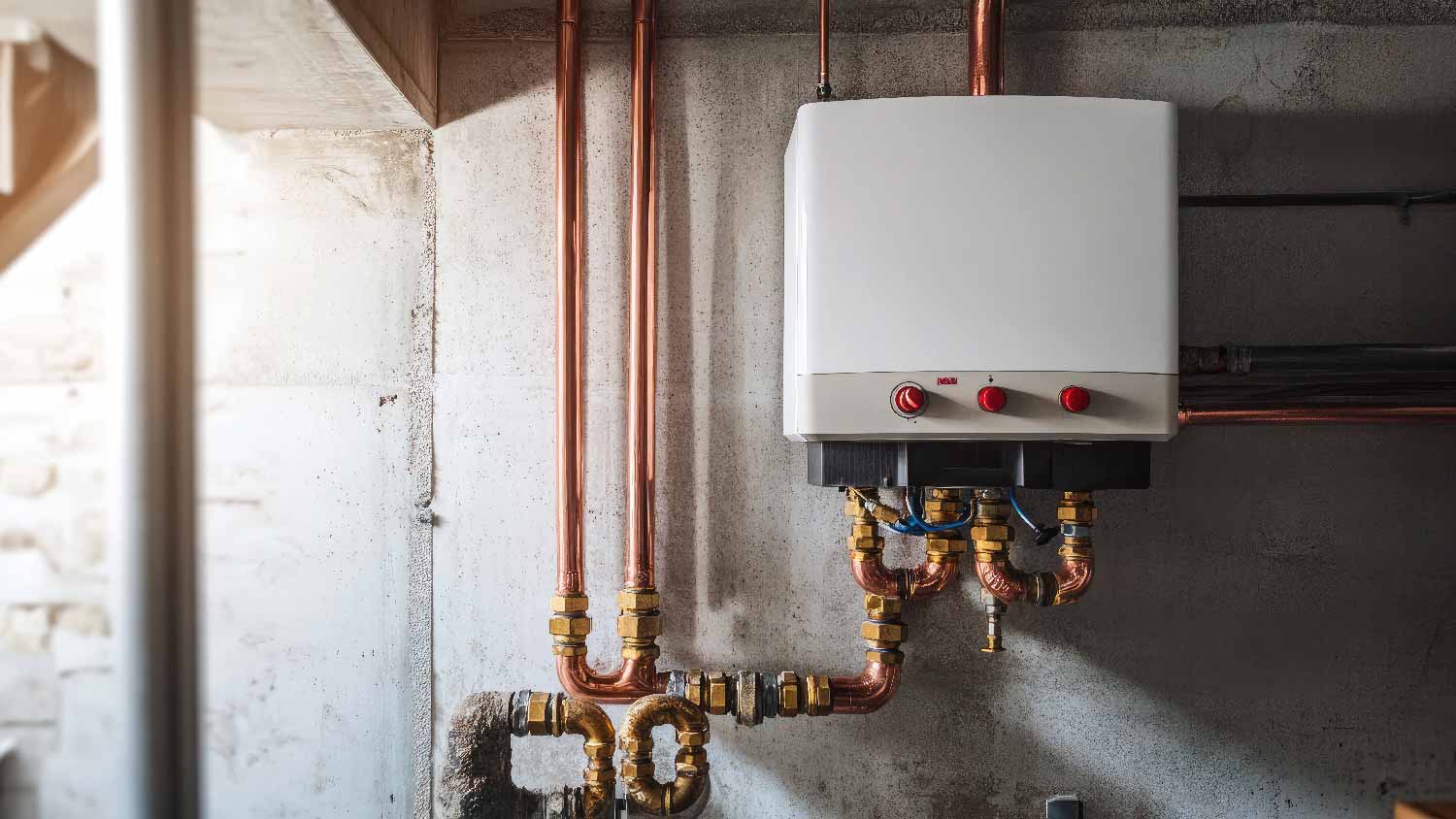How Long Does an Electric Water Heater Last? Here’s What to Know
Don’t let an old water heater ruin your next bubble bath
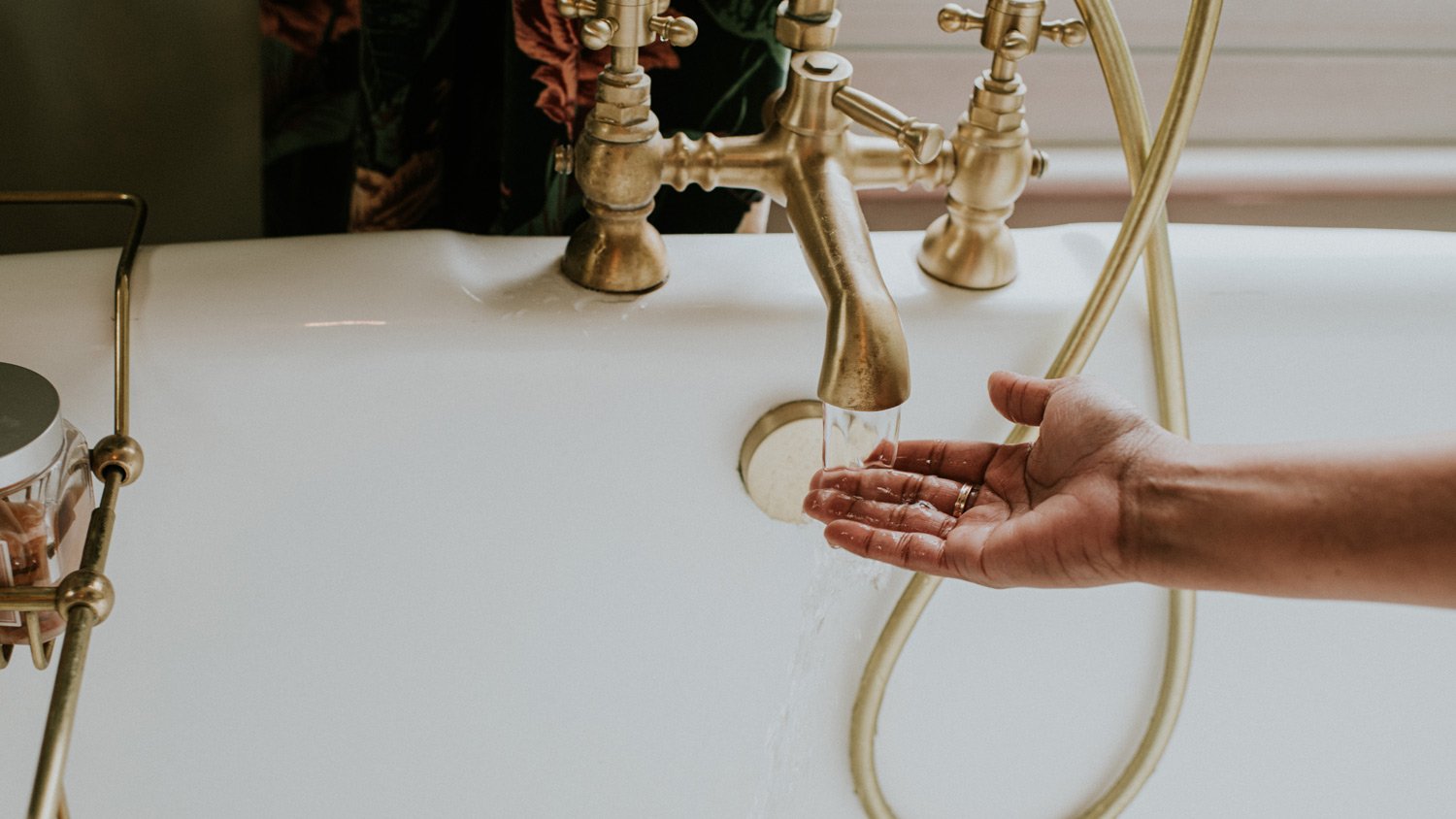

How long does an electric water heater last? On average, electric water heaters last for about 10 to 20 years, but many factors play a role in how long your electric water heater will be able to get the job done. Let’s take a closer look at what those factors are and what you can do to keep your water heater on the up and up for as long as possible.
How Long Does an Electric Water Heater Last?
How long a water heater lasts depends on the make and model and how well it’s installed and maintained. But on average, an electric water heater should last 10 to 20 years. Whether you have a tank or tankless electric water heater also plays a role in the expected lifespan.
Tank water heaters are the most common type of electric water heater, and they tend to last 10 to 15 years with proper care, such as regular flushing and anode rod replacement.
Tankless electric water heaters heat water on demand rather than storing it. Thanks to fewer components being exposed to constant water and heat, they can last 20 years or more.
Factors Influencing How Long an Electric Water Heater Lasts
Several factors impact the lifespan of an electric water heater, from maintenance habits to water quality. Understanding these elements can help homeowners maximize their heater’s efficiency and longevity.
Water Quality
Hard water contains high levels of minerals like calcium and magnesium, which can lead to sediment buildup inside the tank. Over time, this buildup reduces heating efficiency and causes the unit to wear out faster. If you live in an area with hard water, using a water softener or regularly flushing the tank can help mitigate this issue.
Maintenance and Upkeep
Routine maintenance significantly extends a water heater’s life, so make sure you add it to your chores list. Flushing the tank annually removes sediment buildup while replacing the anode rod every few years prevents internal corrosion. Checking for leaks and ensuring proper insulation also contribute to a longer lifespan.
Usage and Demand
Water heaters in households with high hot water demand may wear out faster due to more frequent heating cycles. If you have a big household, consider upping your maintenance schedule.
Installation Quality
Improper installation can lead to inefficiencies, leaks, or even early failure of an electric water heater. Ensuring a professional installation with correct pressure settings and secure connections helps maximize the heater’s durability.
Signs It’s Time to Replace an Electric Water Heater
Understandably, you want to get the most miles out of your electric water heater before you pay to replace it. So, when is it time to make the leap? These are some common signs you need a new water heater.
Performance issues: If your water heater is not working as it should and you are experiencing inconsistent water temperature, insufficient hot water, or slow heating times, it’s time for an upgrade.
Damage and leaks: Visible rust or corrosion, leaks around the tank, and unusual noises can all reduce efficiency and be signs of bigger problems to come.
Efficiency concerns: Sometimes, buying a new water heater can cost you less in the long run. If you notice a sudden increase in electricity costs, that may mean the heater is working harder than necessary. Repairs aren’t always the solution here. If repairs are becoming frequent and costly, replacing the unit is a better investment.
How to Increase the Lifespan of an Electric Water Heater
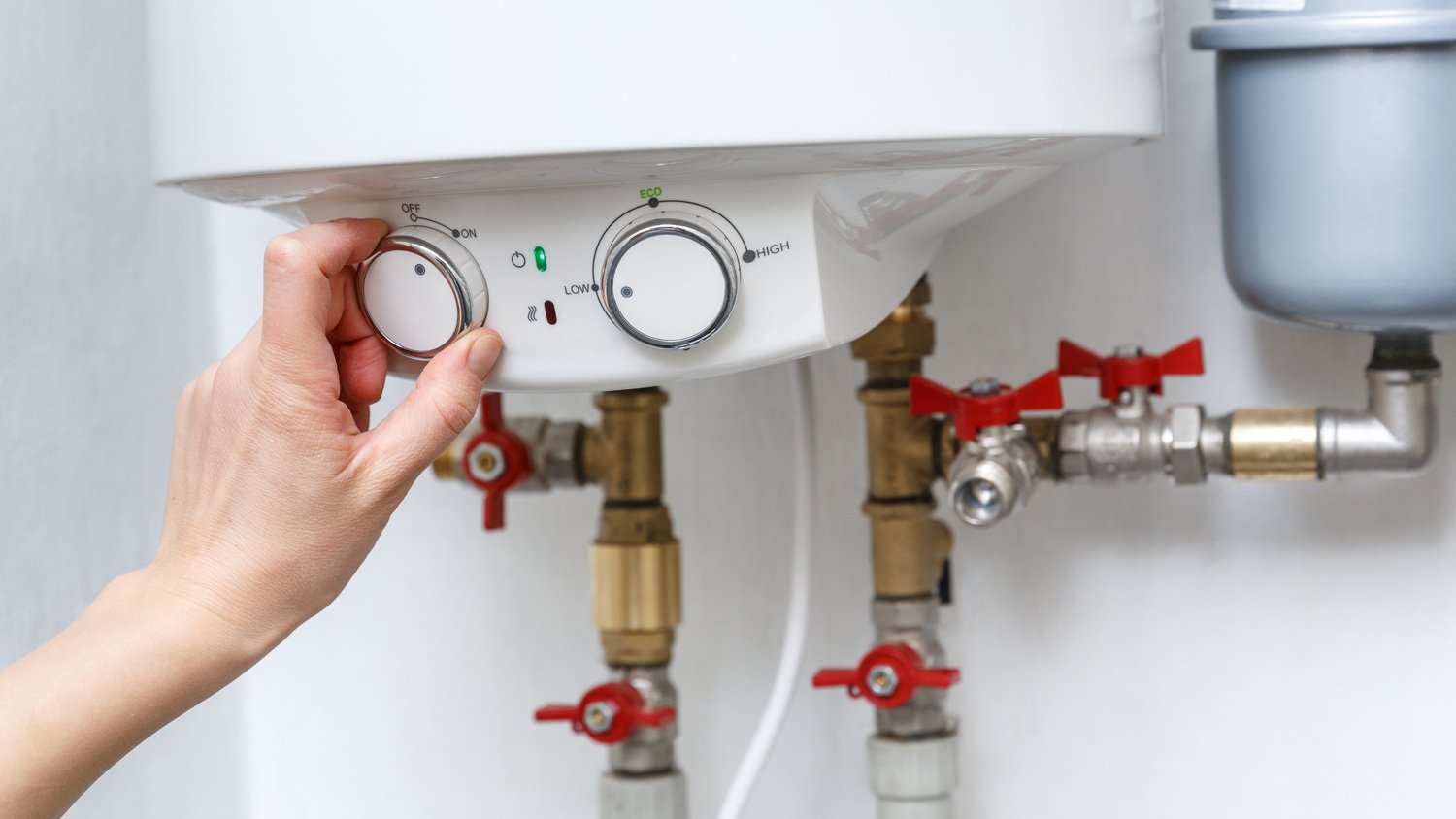
Your electric water heater is an important component of your home, so you want it to last as long as possible. Luckily, there are steps you can take to extend its lifespan.
Flush the tank annually: Drain the tank once a year to remove sediment buildup that can reduce efficiency and cause damage.
Replace the anode rod: Inspect and replace the anode rod every three to five years to prevent rust and corrosion inside the tank.
Install a water softener: If you have hard water, a softener helps reduce mineral buildup, extending the heater’s lifespan.
Check the pressure relief valve: Test this safety feature yearly to ensure it’s functioning properly and preventing excess pressure.
Adjust the thermostat: Keeping the temperature around 120 degrees Fahrenheit reduces wear on heating elements and prevents overheating.
Insulate the tank and pipes: Adding insulation improves efficiency and reduces strain on the heater, especially in colder climates.
Schedule professional maintenance. A plumber can inspect your heater for potential issues and perform necessary upkeep.
Address leaks and rust early. Catching small problems before they worsen can prevent costly damage and extend the unit’s life.
Warranties for an Electric Water Heater
Most electric water heaters come with warranties lasting six to 12 years. These warranties tend to cover parts and sometimes include labor costs. Check your warranty details in the manufacturer’s documentation and register your unit. Your warranty can really come to the rescue, especially if you’re facing costly repairs.
Repairing vs. Replacing an Electric Water Heater
If your water heater is under 10 years old and has a minor issue (like a faulty thermostat or heating element), repairing may be the best option. However, if it’s over 10 to 15 years old, leaking, or needs frequent repairs, replacement makes the most sense.
The average replacement cost for a new water heater is $1,330, with prices ranging from $880 to $1,800. A water heater installation professional near you can help you decide between a repair and a replacement.
Frequently Asked Questions
Signs your electric water heater is failing include inconsistent water temperature, reduced hot water supply, longer heating times, or discolored water (rusty or cloudy). Unusual noises like popping or rumbling suggest sediment buildup, while leaks or corrosion around the tank signal structural damage. If your unit is over 10 to 15 years old and experiencing frequent issues, it may be time to replace it.
Electric water heaters typically last 10 to 20 years, though proper maintenance can extend their lifespan. If your unit is over a decade old and showing signs of inefficiency—such as higher energy bills, frequent repairs, or leaks—replacement is a smart investment. Tankless models last over 20 years, which can make them a longer-lasting alternative to traditional tank water heaters.



